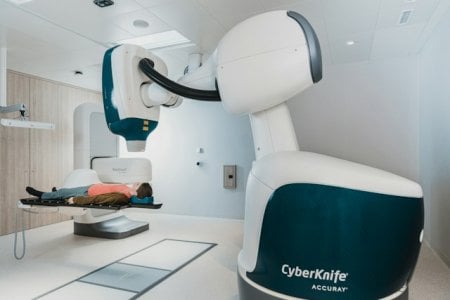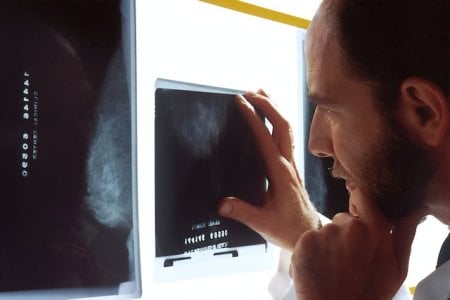Could you be at risk? Undiagnosed cancer affects thousands, according to new data
By
Seia Ibanez
- Replies 15
As the saying goes, ‘prevention is better than cure’—especially when it comes to disastrous illnesses like cancer.
Cancer is one of the most feared diseases in the world. It strikes without warning, can be debilitating in its treatments, and can sadly take lives.
But an alarming new discovery revealed just how dangerous it can be when it remains undetected.
The Victorian Cancer Registry has recently released alarming data suggesting that an estimated 6660 Victorians could be living with undiagnosed cancer.
This hidden health crisis, driven by Victoria's ageing and growing population, could lead to a higher risk of death or poorer outcomes due to late detection of the disease.
This unexpected revelation comes in the wake of an unusual dip in cancer rates last year, contrary to the expected rise. The reasons behind this anomaly are thought to be multifaceted, with the COVID-19 pandemic playing a significant role.
Melbourne mum Tahli Batkilin's story is a stark reminder of the importance of early detection and diagnosis.
During the peak of the COVID-19 pandemic in late 2020, Batkilin experienced shortness of breath and a persistent cough.
However, due to the overlap of these symptoms with those of COVID-19, her initial attempts to seek medical attention were dismissed as potential seasonal asthma.
‘Because it was a COVID symptom, she refused to see me basically,’ she said.
‘She said it's probably just seasonal asthma and to have some ventolin.’
It was only after seeking a second opinion and pushing for a chest X-ray that Batkilin was diagnosed with stage four lymphoma.
'If I didn't push for that chest X-ray, I probably wouldn't be here,' she said.
Her story underscores the importance of advocating for one's health and seeking multiple medical opinions when necessary.
The new data suggests that thousands of Victorians could be unknowingly living with bowel, breast, and lung cancers, as well as melanoma.
The missing diagnoses are believed to result from the disruption caused by COVID-19 lockdowns on the health system, which led to fewer Victorians undergoing regular screenings and assessments.
Medical experts are now preparing for a potential influx of more advanced tumour cases, particularly in bowel cancer. This highlights the critical role of regular screenings in early detection and successful treatment of cancer.
Professor Sue Evans from the Victorian Cancer Registry emphasised the importance of seeking medical attention.
'People have felt rather than being a burden, they would not present to their health professionals on things we would have liked them to have presented with,' she said.
Despite these challenges, there is a silver lining. Thanks to advancements in detection and treatment methods, the five-year survival rate for all cancers in Victoria is now above 70 per cent for both men and women.
Batkilin, for instance, is now cancer-free.
Her advice to others?
'If you don't push for yourself, no one else is going to do it for you.'
Regular cancer screenings are a crucial part of maintaining good health, especially as we age. These screenings can detect cancer in its early stages, often before symptoms even appear. Early detection significantly increases the chances of successful treatment and survival.
Screenings can vary based on the type of cancer and individual risk factors.
For instance, mammograms are recommended for early detection of breast cancer, while colonoscopies can detect bowel cancer.
According to a trial conducted by five hospitals in the United Kingdom, doctors discovered a new immunotherapy drug called ‘durvalumab’ that helps destroy certain types of cancers in the lower part of the bowel.
Durvalumab has been used as a treatment for certain types of lung cancer, endometrial, and stomach cancers. This treatment was also found to destroy rectal tumours in patients with a specific type of cancer.
Regular skin checks can help identify melanoma, and lung cancer can be detected through low-dose CT scans.
If you've missed a regular check-up or screening due to the pandemic, consider scheduling one as soon as possible.
Remember, your health is your wealth. Don't hesitate to seek medical attention if you notice any unusual changes in your body.
 What are your thoughts on this issue, members? Have you been keeping up with your regular health screenings? Share your thoughts in the comments below.
What are your thoughts on this issue, members? Have you been keeping up with your regular health screenings? Share your thoughts in the comments below.
Cancer is one of the most feared diseases in the world. It strikes without warning, can be debilitating in its treatments, and can sadly take lives.
But an alarming new discovery revealed just how dangerous it can be when it remains undetected.
The Victorian Cancer Registry has recently released alarming data suggesting that an estimated 6660 Victorians could be living with undiagnosed cancer.
This hidden health crisis, driven by Victoria's ageing and growing population, could lead to a higher risk of death or poorer outcomes due to late detection of the disease.
This unexpected revelation comes in the wake of an unusual dip in cancer rates last year, contrary to the expected rise. The reasons behind this anomaly are thought to be multifaceted, with the COVID-19 pandemic playing a significant role.
Melbourne mum Tahli Batkilin's story is a stark reminder of the importance of early detection and diagnosis.
During the peak of the COVID-19 pandemic in late 2020, Batkilin experienced shortness of breath and a persistent cough.
However, due to the overlap of these symptoms with those of COVID-19, her initial attempts to seek medical attention were dismissed as potential seasonal asthma.
‘Because it was a COVID symptom, she refused to see me basically,’ she said.
‘She said it's probably just seasonal asthma and to have some ventolin.’
It was only after seeking a second opinion and pushing for a chest X-ray that Batkilin was diagnosed with stage four lymphoma.
'If I didn't push for that chest X-ray, I probably wouldn't be here,' she said.
Her story underscores the importance of advocating for one's health and seeking multiple medical opinions when necessary.
The new data suggests that thousands of Victorians could be unknowingly living with bowel, breast, and lung cancers, as well as melanoma.
The missing diagnoses are believed to result from the disruption caused by COVID-19 lockdowns on the health system, which led to fewer Victorians undergoing regular screenings and assessments.
Medical experts are now preparing for a potential influx of more advanced tumour cases, particularly in bowel cancer. This highlights the critical role of regular screenings in early detection and successful treatment of cancer.
Professor Sue Evans from the Victorian Cancer Registry emphasised the importance of seeking medical attention.
'People have felt rather than being a burden, they would not present to their health professionals on things we would have liked them to have presented with,' she said.
Despite these challenges, there is a silver lining. Thanks to advancements in detection and treatment methods, the five-year survival rate for all cancers in Victoria is now above 70 per cent for both men and women.
Batkilin, for instance, is now cancer-free.
Her advice to others?
'If you don't push for yourself, no one else is going to do it for you.'
Regular cancer screenings are a crucial part of maintaining good health, especially as we age. These screenings can detect cancer in its early stages, often before symptoms even appear. Early detection significantly increases the chances of successful treatment and survival.
Screenings can vary based on the type of cancer and individual risk factors.
For instance, mammograms are recommended for early detection of breast cancer, while colonoscopies can detect bowel cancer.
According to a trial conducted by five hospitals in the United Kingdom, doctors discovered a new immunotherapy drug called ‘durvalumab’ that helps destroy certain types of cancers in the lower part of the bowel.
Durvalumab has been used as a treatment for certain types of lung cancer, endometrial, and stomach cancers. This treatment was also found to destroy rectal tumours in patients with a specific type of cancer.
Regular skin checks can help identify melanoma, and lung cancer can be detected through low-dose CT scans.
If you've missed a regular check-up or screening due to the pandemic, consider scheduling one as soon as possible.
Remember, your health is your wealth. Don't hesitate to seek medical attention if you notice any unusual changes in your body.
Key Takeaways
- New data from the Victorian Cancer Registry estimates at least 6660 Victorians could be living with undiagnosed cancer.
- This undiagnosed disease is attributed to disruptions caused by COVID-19 lockdowns, which resulted in fewer screenings and assessments.
- Experts are predicting an increase in advanced tumours, particularly bowel cancer.
- Doctors are urging people to take advantage of free screenings.









